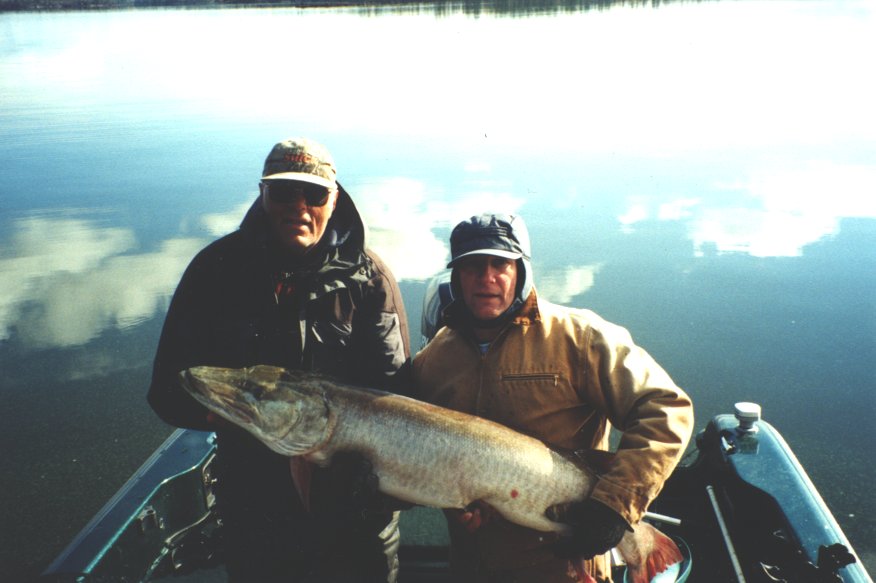|
|
Posts: 389
Location: Corning, Iowa | I know it all depends, but what would the average hours be on a motor? Is there anyway to compare it with a car? I think 20,000 is average for a car. Thanks Doug |
|
| |
|
Posts: 142
Location: Appleton, WI | No real good answer to that question. Maintenance schedule and storage methods are a better indicator when shopping for an engine. I've seen yamaha 4 strokes here in sw Florida with 4000 and still ticking. In the musky world I would say 50 hours a season is an average year for most people with hardcore anglers and guides logging 100 or more without blinking.
|
|
| |
|
Posts: 720
| I put 301 hours on a 250 HP Merc in one season, and the dealer was shocked. So I guess that was extreme amount for a boat that isn't used for trolling at all. |
|
| |
|
Posts: 389
Location: Corning, Iowa | Thanks for the replies. I had no idea. thanks Doug |
|
| |
|
Posts: 433
Location: Cedarburg, Wisconsin | When I bought my last motor the dealer shocked me by stating that the average overall useage for a motor was a little under 14 hours a year. That takes into account everyone though. Like it was said before, if you are a real gung-ho fisherman you can rack up hours that won't quit. I always figured the kicker got 150 hours a year minimum on a typical year when I fished a lot more and for everything, while the big motor probably had 70 or more. The combination of trolling on Lake Michigan and running on Lac Seul on vacations was a real hour bomb. |
|
| |
|

Posts: 3508
Location: Elk River, Minnesota | Hiya,
If you are searching for a new motor, the number of hours on a motor really does not tell you much over the long haul....reason being is that a motor might see heavy usage at high speed pushing a big boat, or it could be slow trolling for hours at a time. Looking at maintenance schedules can be a good predictor of how the engine was taken care of, but it says nothing about the engine itself.
THE best two predictors of how well an engine is performing overall is a compression test AND a leak-down test. There are plenty of other items to look at, but these two would be the best to have performed on any engine one might be considering to purchase. All other items such as electrical components, carbs/injection systems are all fairly simple as compared to a complete engine tear-down and rebuild...
As for a general idea of motor hours, I would say 50 is pretty close for the average use of a motor over a year unless you are trolling or traveling vast expanses of water.
Steve
|
|
| |
|
| I had over 100 hours on my new motor last year. Of those hours, 50% were at less than 1000rpms (idle), which is probably pretty typical; only a few of my hours were at full throttle, which is probably not typical. So total hours don't tell the story, ask for a printout of the distribution of hours across rpms if you're concerned about how a boat/motor was being used.
|
|
| |
|

Posts: 906
Location: Warroad, Mn | I typically put on around 200 high speed hours a year (RPM 4000 and above). My dealer tells me that this is a very high number.
Mercury tells him that reed valves have a life expectancy of around 200 hours on a 225 Opti. I've had lots of reed valve problems.
There are Walleye guys who put many hours on their engines, but lots at low speed.
Engine hours are only an indicator, you need a good tech to check the engine out.
Doug Johnson
Edited by dougj 2/6/2012 6:10 PM
|
|
| |
|
Posts: 389
Location: Corning, Iowa | Thanks again for the replies.We are just starting to look at something different. It's hard to get someone to look at a motor in S.W. Iowa. Not many dealers around. Thanks Doug |
|
| |
|
Posts: 720
| It is very important to break a new motor in properly too....if a mad man did it, it will be problematic to you. Possibly. |
|
| |
 Motor Hours
Motor Hours Motor Hours
Motor Hours